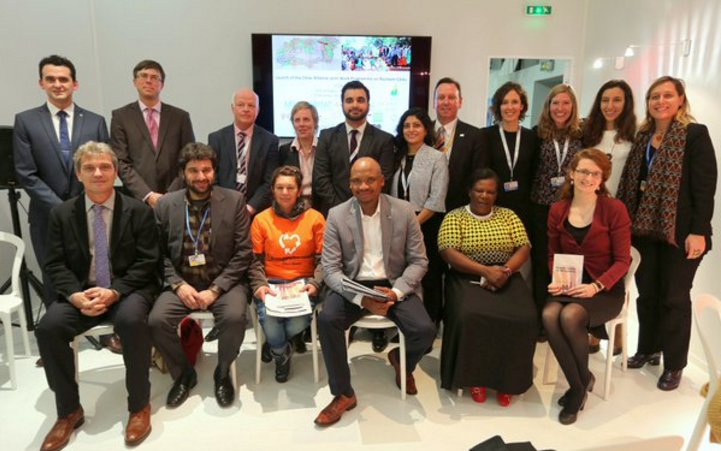
Photo: Screen-Shot-2016-01-13-at-09.32.15
Cities Alliance forms new resilience partnership
19 December 2015
by Jonathan Andrews
Seventeen international development partners have come together within a Cities Alliance Joint Work Programme on Resilient Cities to highlight and address the relationship between resilience and poverty in cities.
The programme will partner with the Medellin Collaboration on Urban Resilience (MCUR) under an action-orientated commitment to support 500 cities strengthen the resilience of their informal communities by 2020.
“Most organisations working on resilience come from one side of the discourse or another, such as environment or, in the case of the Cities Alliance, slum upgrading and urban poverty reduction,” said William Cobbett, Director of Cities Alliance. “This Joint Work Programme is unique because it brings all these perspectives together for a more comprehensive understanding of resilience that will help all partners provide stronger, more coordinated results.”
This cooperation between the MCUR and Cities Alliance will catalyse the two main focus areas of the Joint Work Programme on Resilient Cities:
Facilitating the flow of global knowledge and resources on a global level to help cities become more resilient by fostering harmonisation of resilience approaches and diagnostic tools, catalysing access to innovative finance mechanisms, and supporting institutional capacity development of cities by facilitating direct sharing of good practice.
Leveraging global products for cities, particularly in informal settlements, to support citywide integrated resilience planning, developing strategies and plans aimed at sustainable management of urban energy, and demonstrating collective, local solutions for resilience-building in vulnerable communities.
“Inclusive and integrated resilience strategies backed by local citizens and supported by international institutions are a powerful tool for cities to address an array of social, economic and environmental challenges and inspire transformative, sustainable development,” said Gino Van Begin, Secretary General of ICLEI.
As cities implement tools, policies and approaches, their experiences will feed into the global advocacy portion of the Joint Work Programme, which involves engaging in influential international processes on sustainable development, climate change, disaster risk reduction, and the new urban agenda.
The organisations involved in Cities Alliance Joint Work Programme are:
Arup, Deutsche Gesellschaft fuer Internationale Zusammenarbeit, C40 Cities Climate Leadership Group, the French Alliance for Cities and Territorial Development, ICLEI – Local Governments for Sustainability, Inter-American Development Bank, 100 Resilient Cities, OECD, Slum Dwellers International, Swiss State Secretariat for Economic Affairs, The Ecological Sequestration Trust, United Nations Environment Programme, United Nations Human Settlements Programme, United Nations Office for Disaster Risk Reduction, Women in Informal Employment: Globalizing and Organizing, Global Facility for Disaster Reduction and Recovery, and the World Bank.













